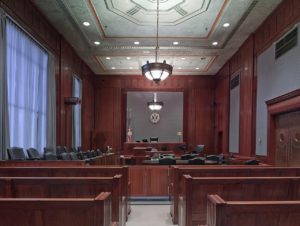Examining Racial Bias in Jury Selection
Although racial bias is prohibited in the jury selection process, many criminal defendants still find themselves having to challenge the government's reasons for excluding potential jurors that are of the same race as the defendant. The jury selection process can be one of the most influential aspects of a criminal trial on the outcome, which is why criminal defense lawyers should take racial bias issues in jury selection very seriously. In United States v. Altareb, the Second Circuit Court of Appeals considered the issue of racial bias in jury selection and how peremptory strikes are used.
The Use of Peremptory Strikes in the Jury Selection Process

Examining Racial Bias in Jury Selection
During the jury selection process, both sides are able to strike jurors for various reasons. A peremptory strike can be used by either side to exclude a juror without having to offer a reason for striking them. There are a limited number of peremptory strikes that both sides can use. Otherwise, each side may challenge jurors for cause, but they have to provide an explanation as to why they think the juror should not be allowed to serve on the case.
Neither the government nor a defendant may use a peremptory strike to exclude a potential juror based on race, gender or religion. The Supreme Court has held that to allow otherwise would be a violation of the Equal Protection Clause of the Fourteenth Amendment.
Challenging Racial Bias in Jury Selection
In the 1986 Supreme Court case of Batson v. Kentucky, a three-part process was set out to determine whether a juror was improperly struck based on racial bias. First, the defendant must put forth a prima facie case. Then, the government must offer a race-neutral reason why the juror was struck. Finally, the court will decide whether the defendant has made a sufficient showing of purposeful discrimination in the government's striking of the juror.
If a defendant prevails on his Baston challenge, then the defendant may be granted a new trial. One of the major criticisms that criminal justice advocates have voiced since Batson v. Kentucky is that there remain few consequences for prosecutors who are found to have excluded jurors based on racial bias. Some courts have also maintained a very low bar for the types of race-neutral explanations that are acceptable from the government after a defendant raises an issue of racial bias.
Jury Selection Issues in United States v. Altareb
In United States v. Altareb, the defendant was convicted of running an unlicensed money transmitting business as well as smuggling bulk cash. He was sentenced to 51 months in prison as well as a fine in excess of $750,000. The defendant appealed his conviction in part because he said that the government was motivated by racial bias in using one of its peremptory challenges on an Arab American juror. She was the only juror in the pool of Arab heritage like the defendant. The government's proffered reasons for striking the juror were that her husband was a taxi driver like the defendant, which might engender sympathy from her towards the defendant, and her employment history was unclear at best. In support of its race-neutral arguments, the government stated that it also struck two other potential jurors because they were unemployed.
The district court noted that it was troubled by the government's use of a peremptory strike on the only juror of Arab heritage. The Second Circuit repeated these concerns. However, both the district court and the Second Circuit upheld the conviction. The Second Circuit reasoned that the government's reasons for striking the juror were sufficient to override a prima facie showing of racial bias in jury selection.
Jury Selection Challenges Going Forward
Despite the trial and appellate courts' admonishment of the government's juror strike in United States v. Altareb, the outcome of the defendant's appeal leaves other defendant's vulnerable to the same issue. It takes a proactive and attentive criminal defense advocate to take note when the government is engaging in impermissible racial bias in striking potential jurors. Your criminal defense lawyer must be even better prepared in order to launch a successful Baston challenge in any federal court. Speak with seasoned defense attorney Brandon Sample as early on in the criminal investigation and trial to ensure that you are not faced with an unfair jury for your trial.
Recommended for you
MVRA Restitution And Loss Amount Inadequate, Eleventh Circuit Holds
United States v. Mitchell J. Stein : Mitchell Stein, a former attorney, challenged the district court’s loss and MVRA restitution determination in a mail, wire, and securities fraud prosecution arguing that the Government had failed to demonstrate both factual and legal causation for the loss amount.Using the same standard for Stein’s loss and restitution challenge,…
Career Offender Enhancement Cannot Be Based On Texas Possession With Intent To Distribute Conviction
United States v. Tanksley – Career Offender Enhancement : Dantana Tanksley was previously convicted in Texas under Section 481.112(a) of the Texas controlled substances act of possessing with intent to distribute a controlled substance. He was later enhanced as a career offender under federal sentencing guidelines. Under the federal sentencing guidelines, an individual can be…
Attorney Abandonment Claim Remanded For A Hearing
Mark Christeson filed a motion to re-open his habeas proceedings under Rule 60(b) arguing that his attorney’s failure to timely submit his 28 U.S.C. § 2254 petition (used by state prisoners but similar to a 2255) constituted attorney abandonment. The abandonment issue was key to resolving whether “extraordinary circumstances” existed to warrant granting Rule 60…




